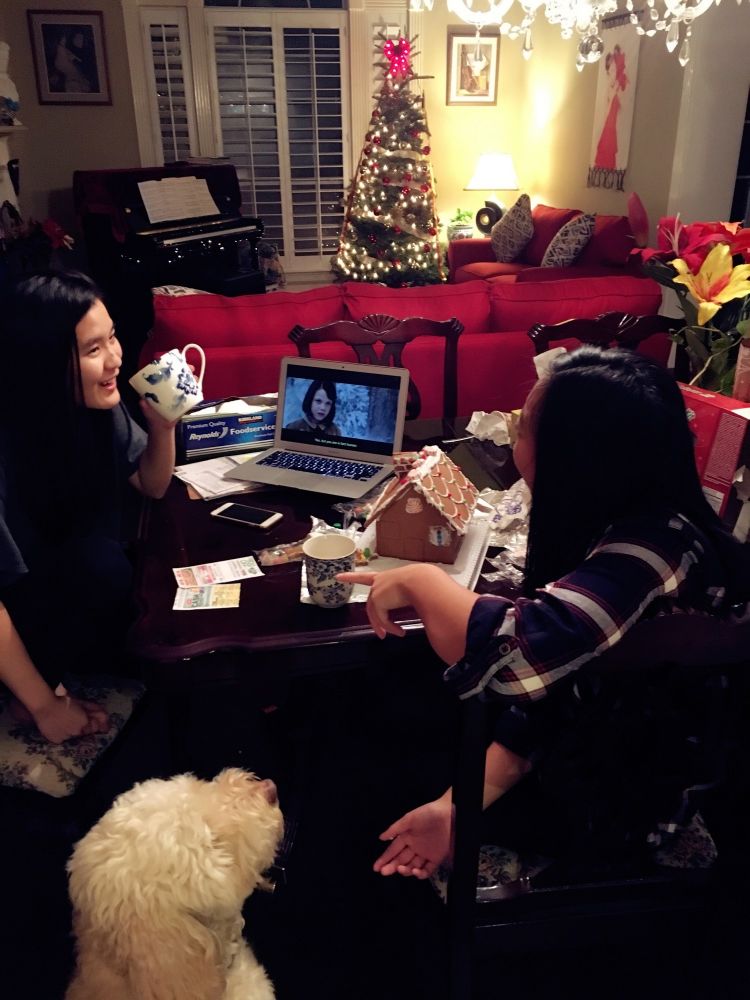Stumble upon my chaotic room, navigate through the pile of clothing on the office chair, and push aside aged copies of National Geographic to find my most prized possession: a journal. It is nondescript: plain, black, hardcover. But flip it open and see its yellowing pages, indications of its true age and value.
Page 1. The smudged ink dates back to 2004. The words are in a language perhaps unreadable: Mandarin. My grandfather crafted these characters; he transcribed my words before I could write. Here, I attempted my name in both languages: scrawny letters from an amateur left-hander who would get the curve of the lowercase “g” backward and struggle to form the proper “ko” pictogram. I live today in much the same way as the writing here indicates, fully rooted in both cultures.
Page 14. Keep reading and see my first sentences, pages filled with my childhood in Canada. A particularly fond memory: catching butterflies with my grandfather. There are rough sketches of specimens I captured, with questions pondered by a curious eight-year-old: Why does a butterfly smell through its legs?
Page 55. I became an author of my own ideas. Here exist the draftings of my novel, dramatically titled Dark Sun, whose heroine, Amber, wore flying shoes and saved the world from global warming. At 120 typed pages, it had multiple plot holes and poorly-developed archetypes; I couldn’t have been prouder of myself. Looking back at this story, I laugh at its absurdity, though I hold the same admiration for the fearless and benevolent Amber.
Page 72. After watching the powerful movie Hotel Rwanda, I wrote a piece of my own, carefully dedicated to the tragedies of the Rwandan genocide. I submitted it into the Scholastic Art and Writing Competition, where it was recognized nationally. This marked my first step in sharing my work, something I’d been afraid of before. It also signaled the beginning of my commitment to writing about social issues—to sending my words out into the world in the service of a cause.
Page 90. I had a voice now, in a style that is decidedly me. I discovered that I have a knack for capturing detail and that I’m an avid pursuer of a perfect ending. I branched from writing creative fiction to non-fiction, as well. Here is one of my proudest works, detailing an invention called The Texas Turtle, a mobile home and solution to homelessness in Houston; it was proposed by my friend George, a previously homeless man I interviewed while doing a project on the issue. Friendly, talkative, and a tad eccentric, George and his passions (ranging from entomology to science fiction) taught me that homelessness is a more diverse issue than we know and that we must humanize the faces behind the homeless population. I wrote with that realization, hoping my words would reflect George’s unique ideas and my own convictions.
My journal ends here, but my passion continues into other venues and notebooks. Now, instead of burying my writing in the abyss of my room, I share my words with the world. I publish my non-fiction pieces tackling the loss of local culture in Houston and share my craziest stories with my friends. Following my grandfather’s example, my dad translates my writings into Mandarin to share with relatives and friends from my hometown in Xi’an, giving my words a tone that can only be conveyed through language.
Ideas come often, but they are constantly fleeting. I choose to pursue them through writing, which has given me an outlet for expressing my thoughts and a voice for a once-shy girl. My journal is a diverse representation of who I was and who I am growing up to be, but it is just a mere introduction to who I am.
Just wait, because I have plenty more to say.

